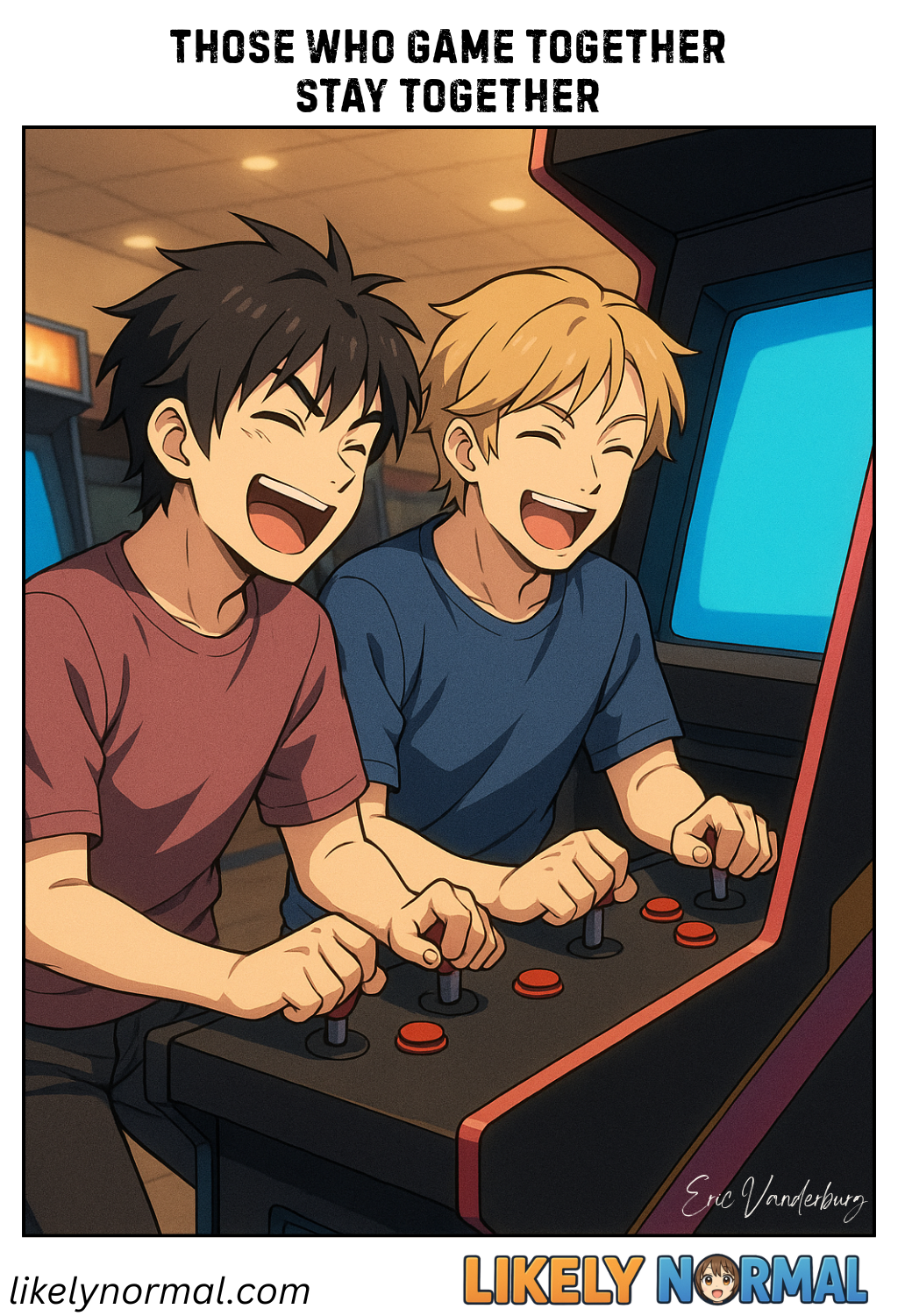Gaming Bonds Like Solder
There is a special bond, one forged between two strangers standing shoulder-to-shoulder at an arcade cabinet, united by a shared quarter pile and the desperate struggle against a pixelated onslaught. The arcade didn’t just create players—it created brothers-in-arms, bound by the sacred creed of “I got next game” and the unspoken understanding that whoever was holding the joystick at that exact moment was the most important person in the universe.
The Arcade Bonding Experience
- The Silent Nod of Respect – When you walked up to Street Fighter II and saw someone pull off a flawless Dragon Punch, you didn’t need words. A single solemn nod said it all: “I acknowledge your power.”
- The Collective Groan – Nothing brought people together like watching some poor kid get absolutely wrecked by Mike Tyson in Punch-Out!!, only for the entire crowd to erupt in sympathetic agony when the KO screen flashed.
- The Loaner Quarter – Handing a stranger your last 25 cents so they could continue a TMNT run was the arcade equivalent of donating a kidney. You might never see them again, but in that moment, you were family.
- The Bystander Coaching – No one was better at backseat gaming than the random 12-year-old leaning over your shoulder screaming “Jump! Jump! How did you not jump?!” during Contra.
The Unwritten Rules
- You Never Walked Away Mid-Game – Even if your mom was yelling from the food court, you stayed until your last life was gone. Abandoning a cabinet was a crime punishable by eternal shame.
- You Cheered for the Underdog – If some scrawny kid was miraculously holding their own in Mortal Kombat, the crowd would shift allegiance instantly, chanting them on like it was the finals of an esports tournament.
- You Honored the Queue – The line of quarters on the control panel was law. Violators risked being exiled to the Skee-Ball alley forever.
The Tragic Modern Void
Today’s multiplayer games are incredible, but they lack the physicality of arcade camaraderie. There’s no equivalent to the elbow jabs during Pac-Man, the shared panic when Joust’s pterodactyl showed up, or the way a perfect Double Dragon combo could make a whole crowd lose their minds. Online, you’re just a gamertag—back then, you were a local legend, even if only for one afternoon.
So here’s to the arcade bonds—the high-fives, the groans, the quarter loans, and the strangers who became temporary heroes. We didn’t just play games; we lived them together, one credit at a time.

Discussion ¬